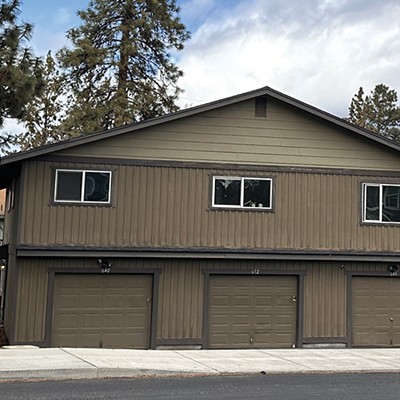This week, the Deschutes County 9-1-1 Service District made the move from an analog-based radio system to a more modern, digital trunked system. Deschutes County Sheriff Shane Nelson told the Source Weekly Tuesday that the old system had reached the "end of its life."
The upside to the switch: the gaps in coverage that sometimes meant first responders didn't have radio service in certain pockets will be a thing of the past. The downside: the public's ability to listen in on police scanner traffic will also be a thing of the past.
According to a fact sheet released by Deschutes County 9-1-1, the "transition means people with scanners will not be able to receive law enforcement radio traffic. Listeners interested in monitoring those channels will need to use the internet-based stream when it becomes available in late-August."
According to that fact sheet, fire and EMS users will continue to use VHR radio systems until late this year, when they, too, will migrate to the digital system. Fire and EMS radio traffic will not be encrypted, but those currently using analog scanners will need to move to a digital scanner in order to hear that traffic.
Meanwhile, no one but law enforcement officials will be able to hear the law enforcement dispatch radio traffic in Deschutes County in real time. According to the fact sheet, the move is intended to "keep local first responders safe."
A report titled, "Considerations for Encryption in Public Safety Radio Systems," featured on the Department of Homeland Security website, states: "unencrypted public safety voice transmissions can be intercepted, abetting criminal activity, thwarting public safety efforts, and endangering the public and public safety personnel."
Beginning in late August, the public can hear that local police traffic, with a 30-minute delay, online. That includes media outlets that have long relied on scanner traffic to inform the public about safety concerns and breaking news that may affect their lives—in real time.
We believe the move to a delayed system in order to keep the public informed is a mistake. Before this move, it's true that anyone with a scanner or an app such as Broadcastify (which allows people to listen live to police and other audio feeds) was able to listen in—and possibly interrupt—law enforcement actions. We admit that could be a problem. Still, those "bad guys" aren't the only ones listening in.
As reported by KOIN, Clark County, Wash., moved to a digital system in June, opting to allow certain media outlets to have encryption keys that would allow them to access police radio traffic, while leaving out the "bad guys" who might use the information for nefarious purposes. In the interest of public safety and media transparency, we believe that option should be considered in Deschutes County.
Steve Reinke, director of the Deschutes County 9-1-1 Service District, told the Source Weekly Tuesday that law enforcement officials discussed the encryption key option for media here, but decided against it due to reports of media outlets "losing keys" or having difficulties managing the keys, which are issued through the Federal Bureau of Investigation.
Nelson said that in addition to securing an active crime scene, consistency remains an important facet of their operations. We argue that in the interest of consistency, local media outlets should be able to rely on the real-time system of gathering information that we've been using for decades. To his credit, Nelson seemed receptive to adjustments in the plan. In the interest of keeping the public informed and media transparency, we'd like that adjustment.




















